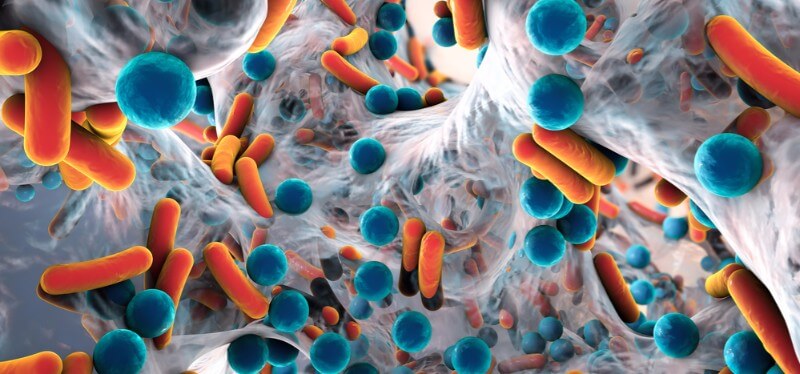Newsletter Signup - Under Article / In Page
"*" indicates required fields
A panel of experts at Microbiome Invest in London discussed the unlimited applications of the microbiome and how emerging companies may have a big impact on healthcare.
During the past 10 years, the role of bacterial populations within our own organism has been studied, revealing a huge potential to develop new types of therapeutics. “The microbiome represents a new way to understand physiology. If you think about any metabolic pathway, it is clear that the microbiome has an impact, and there is a direct effect of drugs that needs to be studied,” says Johan Renes, who specializes in the life sciences sector as a Partner at the global law firm DLA Piper. He also points out that the true potential of most new companies has not been shown yet.
“The key to success is building a proper team, bringing people familiar with manufacturing and regulations, but, more importantly, doing your homework and keeping the people on board,” warns Renes, who holds more than 20 years of experience, to new entrepreneurs working in this area. “The decisions that you make may be great but, quite often, companies fail for reasons that may have been prevented.”

“The microbiome field is huge and there is a number of opportunities for entrepreneurs aiming to launch their companies to the market,” says Johan Kördel, Senior Partner at Lundbeckfonden Ventures, a life sciences venture investing in healthcare, including the French microbiome company Enterome. He admits, though, that there will always be risks due to the complex science behind. As an investor, he claims that the first thing they take into consideration when looking for companies to invest in is that “we look for people, people who know what they are doing and look confident.”
Denise Kelly, Investment Advisor at Seventure, the only VC with a fund dedicated exclusively to the microbiome, agrees. “The world of the microbiome is incredibly exciting. We know now the level at which microbes can impact human biology, and it is not surprising if you think that we evolved surrounded by bacteria and they have developed ways to adapt to us.”
She is aware that, although there is still a lot of studies to be performed regarding all the effects the microbiome has in our organism, the field presents an enormous potential, offering a wide range of opportunities. She also adds that, despite all current challenges, “Some companies present some really interesting results, and that is the reason why we can be optimistic.”
Kelly also points out that one of the most interesting areas in which a microbiome approach could bring a groundbreaking solution is neurology. “There are certain publications that detect synergy between neurobiology and bacteria,” she explains. She also mentioned the role that the microbiome may have in mental diseases, suggesting new possible forms of therapeutic design.

“Our current understanding of the microbiome is based on science evolved from over 10 years ago,” says Mike Romanos, CEO of Microbiotica, a UK-based non-profit spin-out of the Welcome Trust Sanger Institute that works on drugs directed towards the microbiome. Romanos also highlights that some of the current challenges are culturing individual strains of bacteria and working with animal models, which nowadays result problematic due to the lack of information about them.
Despite all current challenges, Romanos highlighted some novel fields to be explored in which the microbiome play a decisive role. “Looking into oncology, there is a high presence of side effects, and there are strong indications that it may be produced by microorganisms, but we still need to study in detail which bacteria are responsible.” He also agrees with Denise Kelly regarding the huge possibilities of the microbiome in neurology. However, he is concerned that “the field of neuronal regeneration is very interesting but hard to work out.”
“The microbiome is a really complex field, and although there is a consortium that includes hundreds of different types of bacteria, every person has their own set,” admits Henry Raths, VP of BD at Seres Therapeutics, one of the most advanced companies working on the field. Despite his huge experience with microbiome companies, he is still concerned about regulations for the development of microbiome-derived products. “There is not a well-established protocol for FDA approval when it comes to the microbiome,” he explains.

Antonio is a PhD student at the Institute of Materials Discovery at University College London (UCL) working on the development of new bioresponsive materials for industrial applications related to healthcare devices with a special interest in the prevention of cardiovascular diseases
Images via White Dragon and Kateryna Kon / Shutterstock






